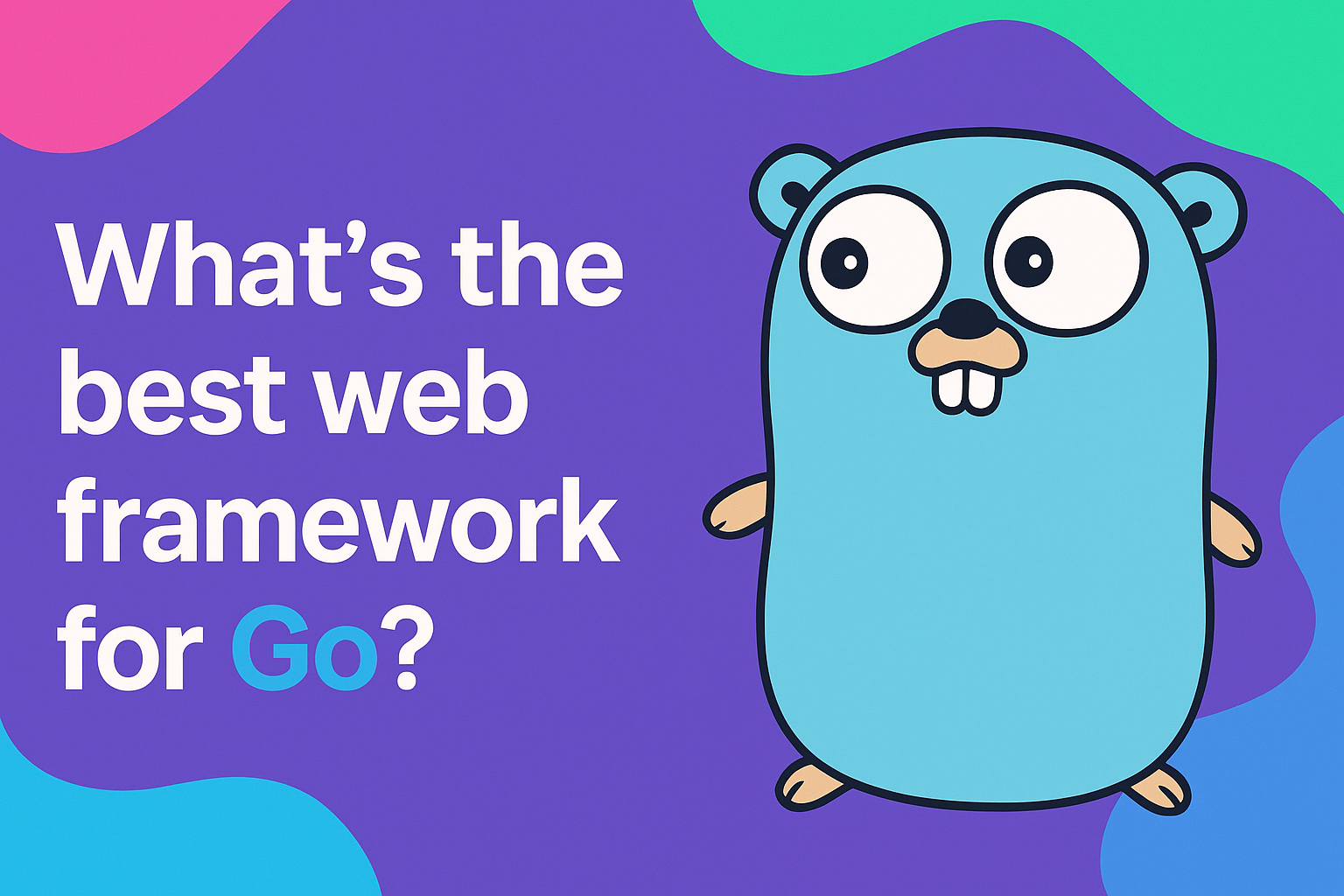Go's ecosystem has exploded with web frameworks over the past few years. Whether you're building a REST API or a full-stack solution, there's likely a framework tailored to your needs.
What this article covers:
We'll walk through the top Go frameworks, compare their features, performance, community support, and use cases. This will help you figure out which one fits your project best.
How to Choose the Right Go Framework
Before diving into individual frameworks, here are some key factors to consider:
- Project TypeAre you building a REST API, microservice, monolithic app, or a full-stack enterprise solution?
- Performance NeedsDo you need to handle millions of requests per second, or is development speed more important?
- Development Speed vs. FlexibilitySome frameworks are opinionated and offer rapid development. Others give you more control but require more setup.
- Community & EcosystemA vibrant community means better documentation, more plugins, and faster bug fixes.
- Learning CurveConsider your team's experience and familiarity with Go and similar web frameworks.
Top Go Frameworks
Gin: The Fast, Popular Workhorse
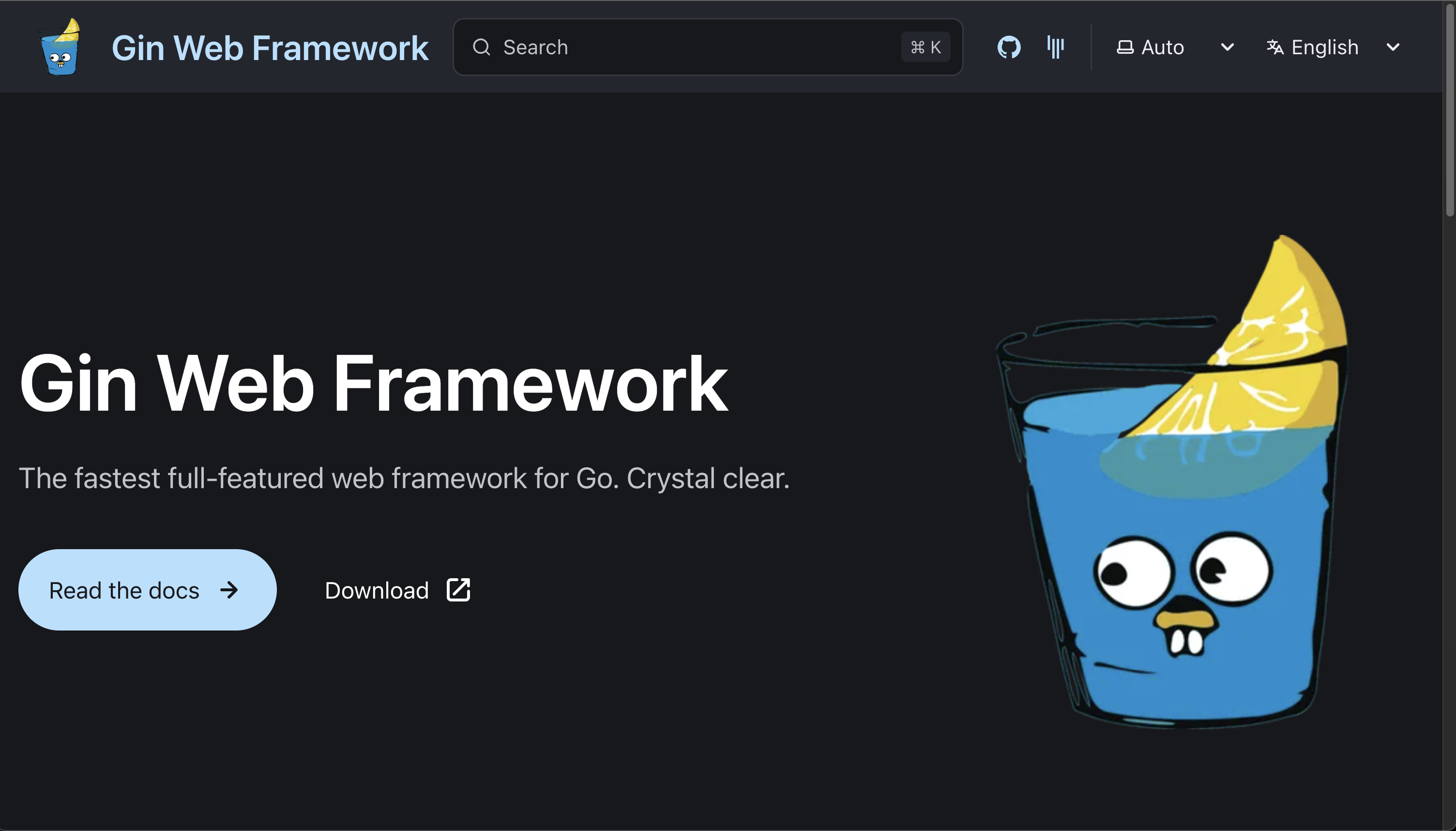
Brief description:
Gin is the most widely adopted web framework in the Go ecosystem. It's designed for speed and simplicity, and it's particularly well-suited for building high-performance REST APIs.
Key features:
- Fast HTTP router
- Middleware support
- Built-in JSON rendering and validation
- Error handling and logging out of the box
- Extensive documentation and active community
Pros & Cons:
✅ Blazing fast performance
✅ Minimalist, low-overhead design
✅ Large community and mature ecosystem
❌ Less opinionated, you'll assemble more by hand
❌ Lacks full-stack utilities like ORM or template engines
Ideal use cases:
- High-performance REST APIs
- Microservices
- Applications needing minimal latency
GitHub stats + resources:
- ⭐ Gin on GitHub (80k+ stars)
Echo: Clean, Lightweight, and Scalable
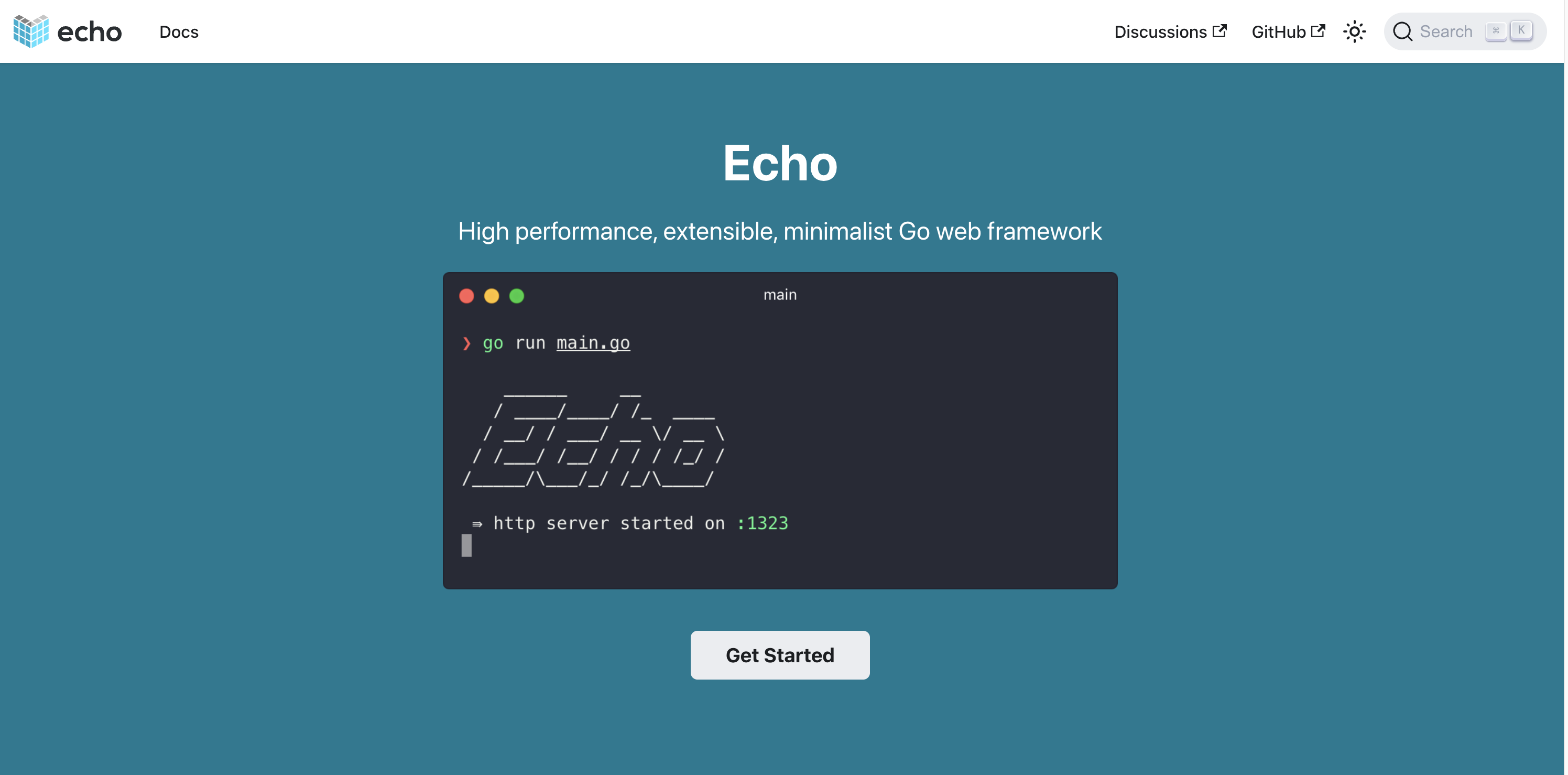
Brief description:
Echo is a high-performance, extensible framework with a minimal footprint. It excels in building scalable RESTful APIs and microservices with clean code and structured organization.
Key features:
- Lightweight, fast router
- Built-in middleware for logging, CORS, etc.
- Automatic binding for JSON/XML/Form data
- Centralized error handling
- Intuitive API design
Pros & Cons:
✅ Clean, structured codebase
✅ Easy to extend and customize
✅ Active ecosystem with good documentation
❌ Smaller ecosystem compared to Gin
❌ Less full-featured out-of-the-box for large apps
Ideal use cases:
- Lightweight APIs
- Scalable microservices
- Projects where structure and clarity are priorities
GitHub stats + resources:
- ⭐ Echo on GitHub (30k+ stars)
Beego: All-in-One MVC for Enterprises
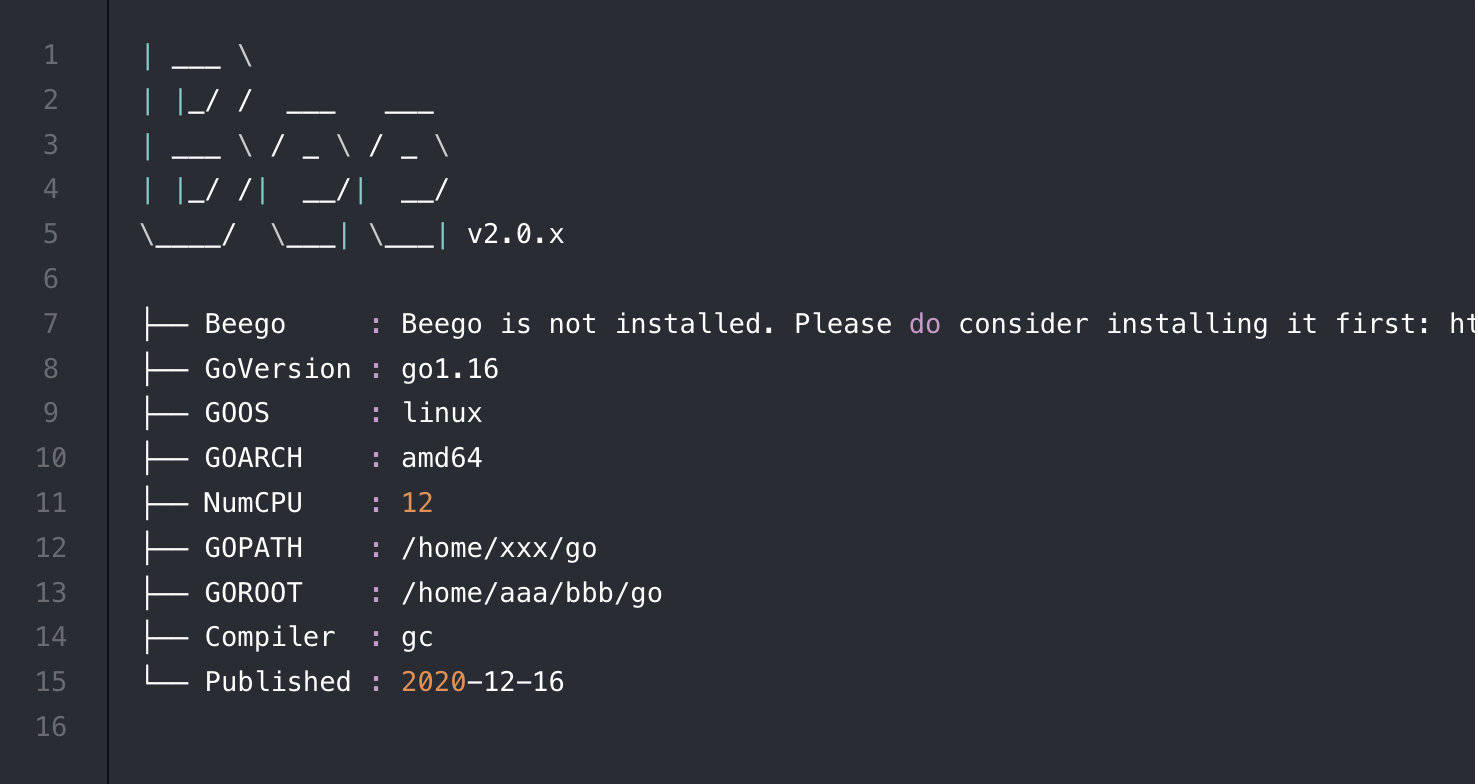
Brief description:
Beego is a full-featured MVC framework inspired by Django and Rails. It offers built-in ORM, routing, sessions, and a CLI. It's ideal for enterprise-grade, full-stack Go applications.
Key features:
- MVC architecture with strong separation of concerns
- Built-in ORM and web server
- Code generation and CLI tools
- Integrated logging and session management
Pros & Cons:
✅ Enterprise-ready toolchain
✅ Built-in scaffolding for rapid development
✅ Good documentation and legacy use
❌ Heavier learning curve
❌ Less active than Gin or Echo in recent years
Ideal use cases:
- Enterprise apps
- Admin dashboards
- Full-stack monoliths
GitHub stats + resources:
- ⭐ Beego on GitHub (30k+ stars)
Fiber: Lightning Fast and Express-Inspired
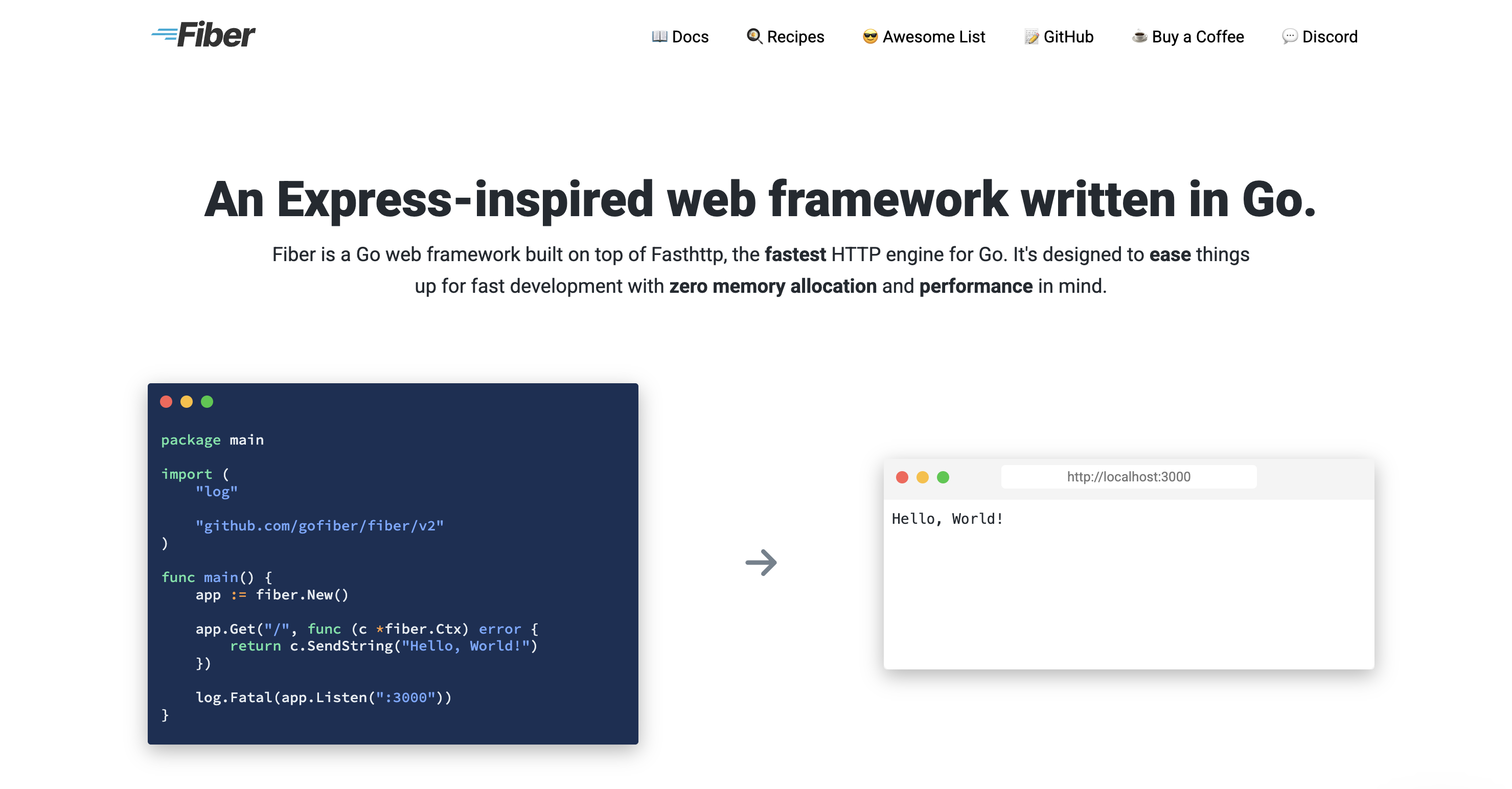
Brief description:
Fiber is a modern web framework built on top of FastHTTP, Go's fastest HTTP engine. Inspired by Express.js, it offers an intuitive API and top performance.
Key features:
- Express-style API for fast onboarding
- Low memory footprint
- Static file handling
- Built-in middleware system
- Built on FastHTTP for speed
Pros & Cons:
✅ Top performance
✅ Great for Express.js developers transitioning to Go
✅ Active community and rapid development
❌ Not compatible with net/http standard
❌ Smaller ecosystem and fewer integrations
Ideal use cases:
- Real-time services
- High-throughput microservices
- Developers familiar with Express.js
GitHub stats + resources:
- ⭐ Fiber on GitHub (35k+ stars)
Honorable Mentions
net/httpServeMux (Standard Library):Go's built-inhttp.ServeMuxis minimal, fast, and rock-solid. It supports basic routing via path matching and allows handling different HTTP methods. it's a great starting point and perfectly suitable for small services, internal tools, or projects that value zero dependencies.- A robust HTTP router with powerful matching rules. Not a full framework, but widely used in custom Go setups.
- A full-stack framework with hot reload and code generation. Great for rapid prototyping.
- A toolkit for building reliable, maintainable microservices. Focused more on architecture than web-specific needs.
- A "Rails for Go" framework, includes everything from front-end tools to database migrations. Excellent for rapid development. (Sadly, it's not maintained anymore.)
Feature Breakdown
💡 Overview
| Framework | Performance | Features | Community | Onboarding | Best Use Case |
|---|---|---|---|---|---|
| Gin | ⭐⭐⭐⭐⭐ | ⭐⭐⭐ | ⭐⭐⭐⭐⭐ | ⭐⭐ Easy | REST APIs, microservices |
| Echo | ⭐⭐⭐⭐⭐ | ⭐⭐⭐ | ⭐⭐⭐ | ⭐⭐ Easy | Scalable APIs, clean architecture |
| Fiber | ⭐⭐⭐⭐⭐ | ⭐⭐⭐ | ⭐⭐⭐ | ⭐⭐ Easy | Real-time apps, Express.js style |
| Beego | ⭐⭐⭐ | ⭐⭐⭐⭐ | ⭐⭐⭐ | ⭐⭐⭐ Medium | Enterprise-grade full-stack apps |
| Buffalo | ⭐⭐ | ⭐⭐⭐⭐ | ⭐⭐ | ⭐⭐ Medium | Full-stack apps with front-end |
| Go Kit | ⭐⭐⭐ | ⭐⭐ | ⭐ | ⭐⭐⭐ Hard | Large-scale microservices |
| ServeMux | ⭐⭐⭐ | ⭐ | ⭐⭐⭐ | ⭐ Easy | Internal tools, zero-dependency |
🚀 Features
| Framework | Advanced Routing | Middleware | ORM | CLI Tools | Template Engine |
|---|---|---|---|---|---|
| Gin | ✅ | ✅ | ❌ | ❌ | ❌ |
| Echo | ✅ | ✅ | ❌ | ❌ | ❌ |
| Fiber | ✅ | ✅ | ❌ | ❌ | ❌ |
| Beego | ✅ | ✅ | ✅ | ✅ | ✅ |
| Buffalo | Moderate | ✅ | ✅ | ✅ | ✅ |
| Go Kit | ✅ | ⚠️ Manual | ❌ | ❌ | ❌ |
| ServeMux | Basic | ⚠️ Manual | ❌ | ❌ | ❌ |
Conclusion: What's the Best Framework for You?
Choosing the best framework depends on what you're building:
- 🏆 Best All-Rounder: GinFast, battle-tested, and minimal. Perfect for REST APIs and microservices.
- ✨ Most Elegant: EchoClean structure, great for scalable APIs with modern code practices.
- ⚡ Fastest & Express-like: FiberWins on raw speed and familiar syntax if you're coming from Express.js.
- 🏢 Enterprise-Ready: BeegoIs your go to if you want everything baked in: MVC, ORM, and tooling.
- 🔧 Barebones Simplicity: ServeMuxGreat for tiny services or when you want zero dependencies.
💡 Final take:
The best framework is the one that fits your needs.
Here's a list of Go web frameworks ranked by GitHub stars: Go Web Framework Stars – mingrammer
